 W
WOtakar Batlička was a Czech adventurer, journalist, ham (amateur) radio operator, and member of the Czech-based Nazi resistance group Obrana Národa during World War II.
 W
WHeinrich Blum was a Czech architect.
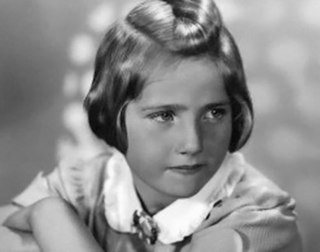 W
WHanička "Hana" Brady was a Czechoslovakian Jewish girl murdered in the gas chambers at German concentration camp at Auschwitz, located in the occupied territory of Poland, during the Holocaust. She is the subject of the 2002 non-fiction children's book Hana's Suitcase, written by Karen Levine.
 W
WDr. Jan Jerzy Buzek was a Polish physician, activist and politician from the region of Zaolzie, Czechoslovakia.
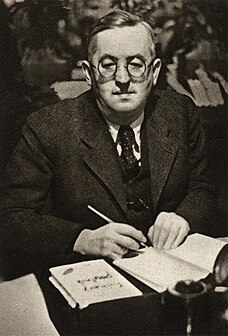 W
WJosef Čapek was a Czech artist who was best known as a painter, but who was also noted as a writer and a poet. He invented the word "robot", which was introduced into literature by his brother, Karel Čapek.
 W
WNorbert Fabián Čapek was the founder of the modern Unitarian Church in Czechoslovakia.
 W
WFrantišek Chvalkovský was a Czech diplomat and the fourth foreign minister of Czechoslovakia.
 W
WFrantišek Erben was a gymnast, trainer, and educator from Bohemia, in what is now the Czech Republic. Erben made his international competitive debut at the 1900 Paris Summer Olympics where he finished in 32nd place.
 W
WGisi Fleischmann was a Zionist activist and the leader of the Bratislava Working Group, one of the best known Jewish rescue groups during the Holocaust. Fleischmann was arrested on 15 October 1944 and was murdered in the Auschwitz concentration camp three days later.
 W
WLisl Frank was a Czech singer, dancer and actress. She achieved success before World War II.
 W
WPetr Ginz was a Czechoslovak boy of partial Jewish background who was deported to the Theresienstadt concentration camp during the Holocaust. He died at the age of sixteen when he was transferred to Auschwitz concentration camp and gassed to death upon arrival. His diary was published after his death.
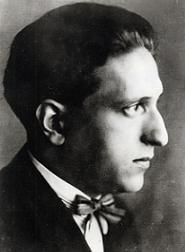 W
WPavel Haas was a Czech composer who was murdered during the Holocaust. He was an exponent of Leoš Janáček's school of composition, and also utilized elements of folk music and jazz. Although his output was not large, he is notable particularly for his song cycles and string quartets.
 W
WKarel Hašler was a Czech songwriter, actor, lyricist, film and theatre director, composer, writer, dramatist, screenwriter and cabaretier. He was murdered in the Mauthausen concentration camp.
 W
WVladimír Helfert was an important Czech musicologist in the interwar period. Although his early career as a music critic was clouded by the negative influence of his teacher, Zdeněk Nejedlý, with whom he studied at Charles University. After accepting a post in 1922 as professor of musicology at Masaryk University in Brno, he went against Nejedlý's teachings and championed the music of Leoš Janáček. His greatest work, Česká moderní hudba. Studie o české hudební tvořivosti, came under public attack by Nejedlý and his remaining followers. During the Nazi occupation, Helfert became involved with the underground Czechoslovak Communist Party and was arrested for resistance activities. He was interned in Brno's Špilberk Castle by the Gestapo in 1939, and subsequently in Wrocław until 1942. After convalescing he was arrested again in 1944, and held in Prague's Pankrác prison and finally the Theresienstadt concentration camp: his health did not survive the trip back to Prague after liberation.
 W
WMilena Jesenská was a Czech journalist, writer, editor and translator.
 W
WRudolf Karel was a distinguished Czech composer.
 W
WPeter Kien was a Jewish artist and poet active at the Theresienstadt concentration camp. He died at the age of twenty-five.
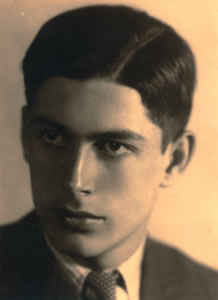 W
WGideon Klein was a Czech pianist, classical music composer, educator and organizer of cultural life at Theresienstadt concentration camp.
 W
WFrantišek Kloz was a Czech football player.
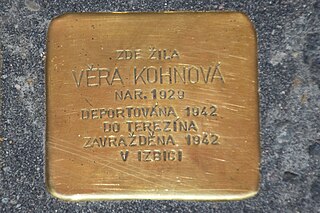 W
WVěra Kohnová was a young Czechoslovakian Jewish diarist who wrote a diary about her feelings and about events during the Nazi occupation. Her diary was published in 2006.
 W
WPaul Kornfeld was a Prague-born German-language Jewish writer whose expressionist plays and scholarly treatises on the theory of drama earned him a specialized niche in influencing contemporary intellectual discourse.
 W
WHans Krása was a Czech composer, murdered during the Holocaust at Auschwitz. He helped to organize cultural life in Theresienstadt concentration camp.
 W
WKamil Krofta was a Czech historian and diplomat.
 W
WAnton Krošl was a Slovenian historian, educator, politician, and writer.
 W
WPaul Leppin was a 20th-century Bohemian writer of German language, who was born and lived in Prague.
 W
WAnna Čalounová-Letenská was a Czech theatre and film actress. During the 1930s and 40s, she appeared in twenty-five films. She was murdered in the Nazi concentration camp of Mauthausen.
 W
WDr. Wacław Olszak was a Polish physician, activist and politician from the region of Zaolzie, Czechoslovakia. He was a mayor of the town of Karviná for seven years. Ten days after outbreak of World War II he was murdered by Nazis.
 W
WFrantišek Pecháček was a Czech gymnast who competed for Czechoslovakia in the 1920 Summer Olympics. He was born in Záhornice near Městec Králové and was murdered in Mauthausen-Gusen concentration camp.
 W
WKarel Poláček was a Czech writer, humorist and journalist of Jewish descent.
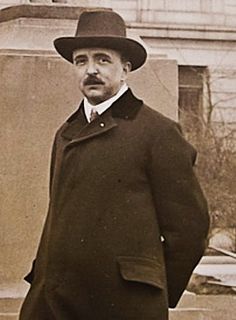 W
WVojtěch Preissig was a Czech typographer, printmaker, designer, illustrator, painter and teacher. He studied in Prague at the School of Applied Industrial Art from 1892 to 1896 and at the School of Decorative Architecture from 1897 to 1898.
 W
WRafael Schächter, was a Czechoslovak composer, pianist and conductor of Jewish origin, organizer of cultural life in Terezín concentration camp.
 W
WMalva Schalek, aka Malvina Schalková, was a Czech-Jewish painter. Trained in Prague, she went on to work in Vienna as a painter. From 1942 to 1944 she was imprisoned in the Theresienstadt concentration camp. In 1944 she was moved to the Auschwitz concentration camp, where she died. Many of her works are held in the Ghetto Fighters' House in Israel.
 W
WErwin Schulhoff was a Czech composer and pianist. He was one of the figures in the generation of European musicians whose successful careers were prematurely terminated by the rise of the Nazi regime in Germany and whose works have been rarely noted or performed.
 W
WJosef Skřivan was a Czech actor. He was active in theatre and film between 1920 and 1937. A resistance member, he was arrested by the Gestapo in October 1941 and was executed at Auschwitz concentration camp in 1942.
 W
WKarol Śliwka was a Polish communist politician from Zaolzie region in the First Czechoslovak Republic. Śliwka was one of the most prominent political leaders of the Polish minority in Zaolzie and a member of National Assembly of the Czechoslovak Republic from 1925 to 1938.
 W
WEmil Starkenstein was a Czech-Jewish pharmacologist and one of the founders of clinical pharmacology. He was killed in the Mauthausen-Gusen concentration camp along with a few hundred refugees from Amsterdam after an incident in which a Dutch Jew resisted a Nazi patrol.
 W
WJan Sviták was a Czech actor and film director. He was an important exponent of Czechoslovak film in the interwar period and during World War II. Sviták was murdered shortly after the liberation of Prague in 1945.
 W
WRudolf Tayerlé (1877–1942) was a Czechoslovak Social Democratic politician and trade union leader. In 1922 he was instrumental in expelling the communists from the Odborové sdružení českoslovanské. In 1942 he was elected vice-president of the International Federation of Trade Unions. Tayerlé was arrested shortly after the German invasion of Czechoslovakia. He died in the Mauthausen-Gusen concentration camp.
 W
WViktor Ullmann was a Silesia-born Austrian composer, conductor and pianist.
 W
WLadislav Vácha was a Czech gymnast and Olympic champion competing for Czechoslovakia.
 W
WIlse Weber née Herlinger, was born in Witkowitz near Mährisch-Ostrau. A Jewish poet, she wrote in German, most notably songs and theater pieces for Jewish children. She married Willi Weber in 1930. She was voluntarily transported to Auschwitz with the children of Theresienstadt and killed in the gas chambers, along with her son, Tommy. Her most popular book was "Mendel Rosenbusch: Tales for Jewish Children" (1929).
 W
WRudolf Wels was a Czech architect active in western Bohemia and in Prague.